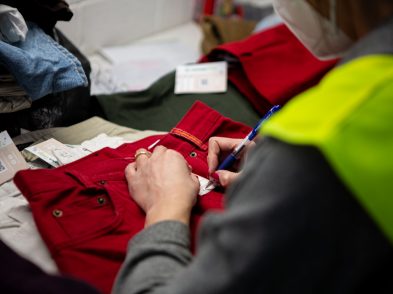There are many students arriving this September
anxious to explore a new city, culture, and nightlife options. But how many of
them have considered the economic and cultural impact of their three- or
four-month stay in Florence? Study abroad is an extended form of cultural
tourism that, beyond personal and educational benefits for the student, also
benefits the local economy.
In the nineteenth century, young people went on
the Grand Tour of Europe, a trip that might last months or years, and that
included Florence, Venice and Rome as part of the goal of understanding the
legacy of antiquity and the Renaissance in their own culture. In part due to
this heritage, in part due to the historical presence of numerous programs in
Florence and Rome, Italy is the now the number two destination of choice for
U.S. study-abroad students; Florence alone welcomes 8,000 of them per term.
The general literature on study abroad often
touts the personal growth benefits to students, including preparation for the
working world. Testimonials speak clearly. Joanna Sandager, who completed a
master’s program in Florence in 2012 and is now working at Atlantic Media, says
that her experience abroad was an asset during job interviews: ‘Employers in
America love interviewing candidates about challenges they have faced and how
they have overcome them. Studying abroad provided me with a breadth of
anecdotal challenges … I can navigate a foreign country and tackle problems
in a different language.’
The economic and social benefit of education
abroad to the host city, however, is seldom mentioned. In fact, study abroad in
Italy is a 400 million euro industry, with a calculated 632 million euro in
indirect revenue, according to a 2008 study by IRPET for the Association of
American College and University Programs in Italy (AACUPI). In Florence, the
city also benefits in other ways from this extended contact: ‘The intercultural
interaction between our students and faculty and the Florentine realities in
every area of daily life keeps Florence in touch with today’s global
challenges, which are tomorrow’s immediate objectives for development,’ says
Portia Prebys, president of AACUPI. Furthermore, there is a form of cultural
and economic income that is even more difficult to calculate: the contribution
of study-abroad students through subsequent visits, continuing or graduate
study, or through long-term residency or immigration.
Unquestionably, an extended stay in the country
develops loyalty: 87 percent of those who studied in Italy say they plan to
return. Aimee Bateas, who graduated with a master’s from James Madison
University in 2011 and now works in London, UK, is planning to visit soon with
a friend: ‘Now that I have a steady income, I’ll be able to go back to Florence
and experience things that I wasn’t able to when I was living there. I also
plan on purchasing some great Italian leather boots that were too expensive to
buy as a student.’ Indeed, as a high percentage of these travellers will be
employed university graduates, we can expect that their expenditures will be
superior to those of students, and more informed or sustainable than those of
the average tourist.
Some graduates may even have sufficient income
to give back to their university’s program, like Del Martin, a consultant in
philanthropy and alumnus of the University of Georgia’s Cortona program in
studio arts. She set up an annual scholarship for the program and solicits
donations from other alumni: ‘We have found that most of the people involved
with the program have a passion about it and about Italy, as well.’
Some study-abroad students who have remained in
Florence or have returned here after further studies have developed impressive
careers in the creative industries, thus contributing in an active way to the
country’s economy. Devorah Block came to Florence for a master’s degree in art
history at Syracuse University in 2005 and is now coordinator of educational
activities at Palazzo Strozzi, where she says her native language skills,
combined with her education, have provided her with a competitive edge. She
plays an integral role in the communication of the content of exhibits at
Palazzo Strozzi, which has a direct effect on approximately 300,000 visitors of
all ages and is part of an important cultural and economic machine: Fondazione
Palazzo Strozzi has an impact of more than 25 million euro on the city, according
to a 2010 study by the Boston Consulting Group.
Another former study-abroad student who is
contributing to the creative industry of the city is Lisa Friend, who graduated
from the Conservatorio di Santa Cecilia in Rome in 1981 (she is a flautist) and
has been teaching the history of opera at many universities in Florence. For
the Maggio Musicale Fiorentino, she created and produced the children’s
educational program, OperAzione: Do You Speak English, an initiative that
involved the collaboration of numerous American education-abroad programs and
over 2,400 local children in sold-out performances. Friend spoke about this
experience at Florens 2010.
People like Block and Friend are part of the
inestimable benefit of study abroad on the city of Florence: they have become
exceptional ambassadors of positive and authentic aspects of Italian culture.
To a lesser degree, many students play this role when they accompany visiting
parents and friends around Florence and Italy, proudly repeating the lessons of
their professors and explaining aspects of everyday life that they have
observed.
What are the elements that make up Italy’s
cultural landscape? And how can they be preserved, promoted and funded so that
other visitors may have positive experiences that affect the country’s culture
and economy in ways similar to that of study abroad programs?
Such questions will be explored during Florens 2012. From November 3 to 11, 2012, students, professors and any who interested
may attend the free talks and related events on these themes. Indeed, the
conversation has already started on twitter, with the hashtag #florens2012, and on the Facebook page:
www.facebook.com/eventoflorens







